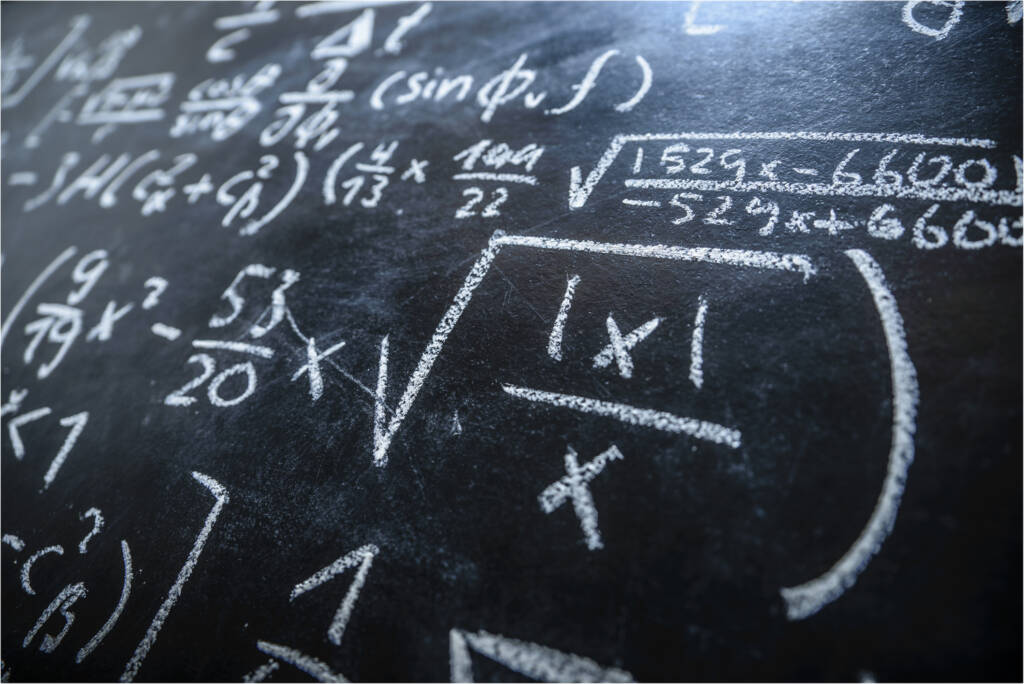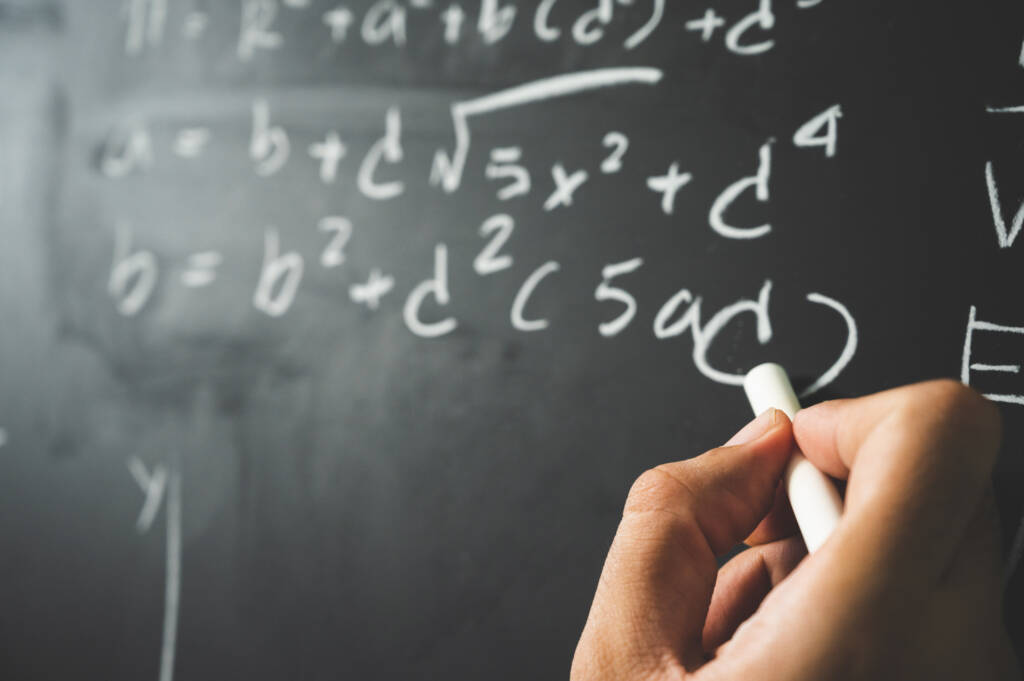
Algebra 2/Algebra 2 Honors

Algebra 2 is an advanced course that allows students to learn content through hands-on activities, applications, and the latest technology. Interactive examples help guide students’ journey through customized feedback and praise. Mathematical concepts are applied to everyday occurrences such as earthquakes, stadium seating, and purchasing movie tickets. Additionally, students investigate the effects of an equation on its graph through the use of technology.
Major Topics and Concepts
Module 1: Radical and Polynomial Operations
- Properties of Rational Exponents
- Solving Radical Equations
- Operations on Complex Numbers
- Polynomial Operations
Module 2: Factoring and Quadratics
- Greatest Common Factors and Special Products
- Factoring by Grouping
- Sum and Difference of Cubes
- Graphing Quadratics
- Completing the Square
- Solving Quadratic Equations with Complex Solutions
- Investigating Quadratics
Module 3: Solving Polynomials
- Polynomial Long Division
- Theorems of Algebra
- Polynomial Transformations
- Solving and Graphing Polynomials
- Polynomial Identities and Proofs
Module 4: Rational Equations
- Simplifying Rational Expressions
- Discontinuities of Rational Expressions
- Asymptotes of Rational Functions
- Solving Rational Equations
Module 5: Exponential and Logarithmic Functions
- Exponential and Logarithmic Functions
- Graphing Exponential Functions
- Graphing Logarithmic Functions
Module 6: Systems of Equations
- Solving Systems of Equations Algebraically
- Solving Systems of Equations Graphically
- Solving Systems of Nonlinear Equations
- Graphing Systems of Nonlinear Equations
Module 7: Sequences and Series
- Arithmetic Sequences and Series
- Geometric Sequences
- Geometric Series
- Sigma Notation
- Graphing Sequences and Series
Module 8: Statistics
- Introduction to Statistics
- Events and Outcomes in a Sample Space
- Independent Probability
- Conditional Probability
- Normal Distribution
- Models of Populations
- Using Surveys and Experiments
Module 9: Trigonometry
- Trigonometry and the Unit Circle
- Unit Circle and the Coordinate Plane
- Trigonometric Functions with Periodic Phenomena
- Pythagoras, Trigonometry, and Quadrants
- Functions of All Types
Competencies
Radical Expressions
Students will demonstrate an understanding of radical equations by simplifying radical expressions and solving radical equations.
Factoring and Quadratics
Students will demonstrate an understanding of quadratic functions by factoring, graphing, and solving quadratic equations.
Polynomials
Students will demonstrate an understanding of polynomial functions by performing operations on polynomials, graphing polynomials, and proving polynomial identities.
Rational Expressions
Students demonstrate an understanding of rational expressions by simplifying rational expressions and solving rational equations.
Exponential and Logarithmic Functions
Students will demonstrate an understanding of exponential and logarithmic functions by simplifying exponential and logarithmic expressions and graphing and solving exponential and logarithmic equations.
Systems of Equations
Students will demonstrate an understanding of systems of equations by solving linear and nonlinear systems of equations algebraically and graphically.
Sequences and Series
Students will demonstrate an understanding of sequences and series by evaluating arithmetic and geometric sequences and series, using sigma notation to evaluate a series, and graphing sequences and series.
Statistics
Students will demonstrate an understanding of statistics by explaining events and outcomes, calculating probability, and analyzing surveys and experiments.
Trigonometry
Students will demonstrate an understanding of trigonometry by solving problems using the Unit Circle, graphing trigonometric functions, solving problems involving trigonometric functions, and analyzing Pythagorean Identities.


